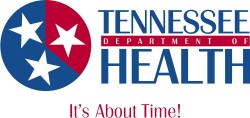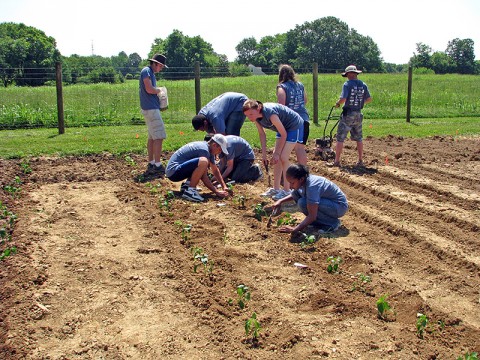 Nashville, TN – Farmers and recreational gardeners will use a variety of tools, equipment and chemicals in the coming weeks to encourage that perfect crop, field or lawn.
Nashville, TN – Farmers and recreational gardeners will use a variety of tools, equipment and chemicals in the coming weeks to encourage that perfect crop, field or lawn.
The Tennessee Department of Health and the Department of Environment and Conservation are reminding professionals and amateurs alike to think about health and safety as outdoor work calls.

“Tennesseans can do their part in promoting good stewardship of the state’s air, land and water by properly storing and disposing those items that are commonly used during yard work, such as herbicides and fertilizers,” said Environment and Conservation Commissioner Bob Martineau.
The two departments suggest the following tips for safe and healthy farm and yard activities:
- Always use sunscreen with high sun protection factors that include protection against both UVA and UVB rays. Apply these products liberally and often.
- Protect your eyes with sunglasses that provide UVA and UVB protection. Among the most common consequences of not wearing sunglasses regularly are the development of cataracts and damage to retinas. Sunglasses will also help prevent damage from flying debris.
- Wear a broad-brimmed hat to protect your neck and face from heat and sun exposure.
- Drink lots of fluids and drink before you feel thirsty. Water is best.
- Stretch your muscles before you begin work; stop working when you feel fatigued.
- Wear hearing protection when using motorized equipment such as tractors, mowers, weed trimmers, chain saws and other similar devices. Chain saw users may want to consider helmets and protective clothing.
- Remember “long, loose and light” for your outdoor wear. Long-sleeved shirts and long pants are best, and for improved effectiveness, tuck your pants into your socks and your shirt into your pants to form bug barriers. Wear loose-fitting clothing to prevent insect bites through the fabric. Light-colored clothes are less attractive to many insects and may allow you to spot them more easily
- Always wear long pants or boots when using weed trimmers. Avoid working in wet grass to avoid slipping. If you use an electric trimmer or device, make sure it’s equipped with a ground fault interruption plug to prevent electrocution.
- Never allow children to ride with you on a riding lawn mower. While they may think of a yard tractor as a fun ride, the potential for serious injury is very real.
- If you must do maintenance work on a tractor or mower, always disconnect the spark plug wire to ensure the motor will not start accidentally.
- Never fuel a motorized device while it is running.
- For healthy streams and creeks, avoid over-application of lawn fertilizers, herbicides or pesticides. When using chemicals such as fertilizers, insecticides and growth stimulants, read and follow the manufacturer’s instructions and purchase only the necessary amount. Always wear respiratory protection, eye protection and the recommended chemical-resistant gloves.
- When finished with lawn care products, dispose of the remaining chemicals properly by taking them to a collection facility that accepts household hazardous waste. Empty containers may be disposed in the regular garbage. The product’s instruction label will usually include disposal information. TDEC also offers mobile household hazardous waste collection service in the spring and fall, which includes pesticide disposal. For more information about these disposal events, please call 1.800.287.9013 or visit www.tn.gov/environment/swm/hhw.
- When working outside alone, make sure someone knows where you are, what you are doing and when you will be back in your home. Don’t be embarrassed about asking someone to check on you.
About the Tennessee Department of Health
The mission of the Tennessee Department of Health is to protect, promote and improve the health and prosperity of people in Tennessee.
For more information about TDH services and programs, visit http://health.state.tn.us/.
About the Tennessee Department of Environment and Conservation
With more than 2,900 employees working across the state, the Tennessee Department of Environment and Conservation is a diverse and dynamic department, serving the state by (1) safeguarding the health and safety of Tennessee citizens from environmental hazards; (2) protecting and improving the quality of Tennessee’s land, air and water; and (3) managing Tennessee’s 54 state parks, 83 natural areas and a variety of historical or archaeological sites.
For more information about the department, please visit www.tn.gov/environment.


